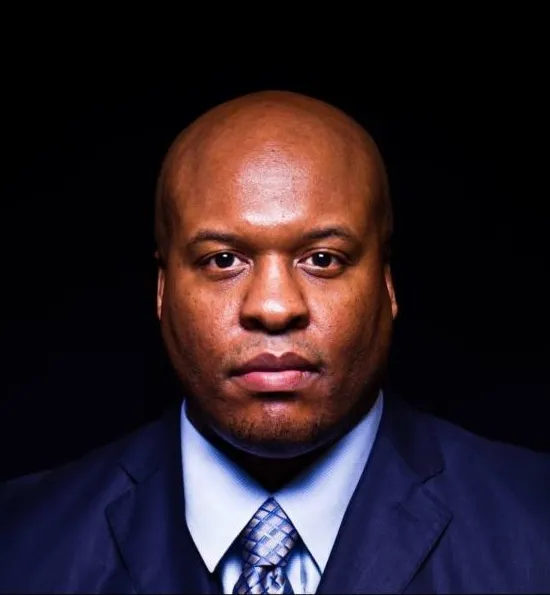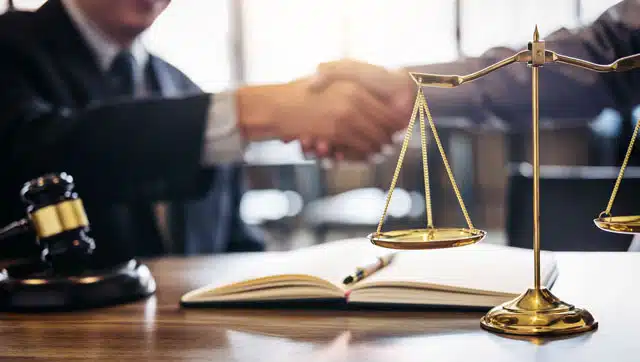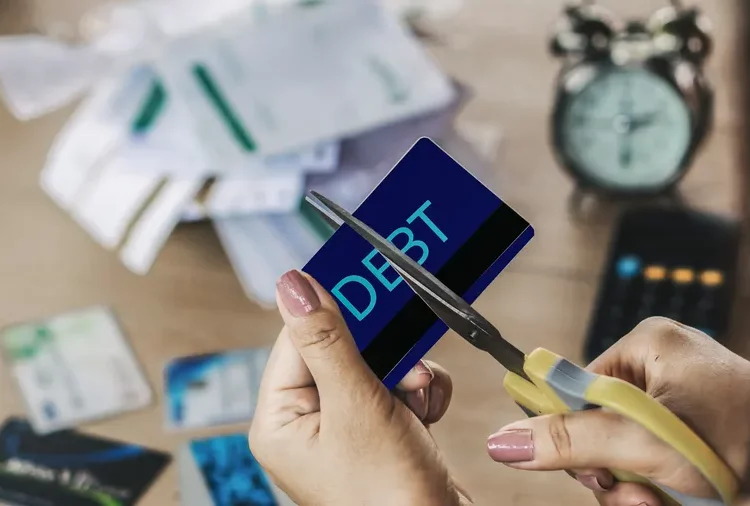Being accused of a crime you didn’t commit can be an overwhelming experience. The weight of the legal system can feel crushing, and the pressure to defend yourself might seem insurmountable. In such situations, having a skilled criminal lawyer by your side can make all the difference. Their expertise in navigating the legal system, building a strong defense, and advocating for your rights can help you achieve a fair outcome.
Toc
In this comprehensive guide, we will explore the importance of finding the best criminal lawyer for your case, the qualities to look for, and practical strategies for identifying the right legal representation. With the right information, you can confidently navigate this challenging process and secure the support you need.
Understanding Your Rights and the Criminal Justice System

Before diving into the search for the best criminal lawyer, it’s crucial to understand your rights and the stages of the criminal justice process. Knowing your rights can empower you during a challenging time and help you make informed decisions.
Fundamental Rights
As an individual facing criminal charges, you have several rights protected by law, including:
- The Right to Remain Silent: You are not obligated to speak to law enforcement without your lawyer present.
- The Right to Legal Representation: You have the right to hire an attorney to represent you throughout the legal process.
- The Right to a Fair Trial: You are entitled to a trial by jury, where evidence will be presented, and your case will be evaluated impartially.
Stages of the Criminal Justice Process
Understanding the stages involved can help demystify the process:
- Arrest: When law enforcement believes you have committed a crime, they may arrest you.
- Arraignment: This is your first court appearance, where you will be formally charged and asked to enter a plea.
- Discovery: Both sides exchange evidence and information related to the case.
- Plea Bargaining: Often, lawyers negotiate with prosecutors to reach a plea deal, which may result in reduced charges or lighter sentences.
- Trial: If no agreement is reached, your case may go to trial, where evidence will be presented, and a verdict will be determined.
- Sentencing: If convicted, the judge will impose a sentence based on the severity of the offense and other factors.
Common Criminal Offenses and Potential Penalties
Understanding the types of charges you might face can help you in your search for the best criminal lawyer. Common offenses include:
- DUI (Driving Under the Influence): Penalties may include fines, license suspension, and even jail time.
- Drug Offenses: Charges can range from possession to trafficking, with varying degrees of severity.
- Theft: Penalties depend on the value of the stolen property, with serious consequences for higher amounts.
- Violent Crimes: Charges such as assault or robbery can lead to significant prison sentences and lasting repercussions.
Qualities of a Top Criminal Lawyer

Finding the best criminal lawyer requires careful consideration of several key qualities. An exceptional criminal defense attorney will possess a combination of skills and attributes that set them apart.
Extensive Experience
Experience is crucial when selecting a criminal lawyer. Look for someone who has handled cases similar to yours and has a solid track record of success. An attorney with years of experience in the courtroom will be familiar with local laws, prosecutors, and judges, which can significantly benefit your case. While experience is undoubtedly valuable, it’s important to remember that newer attorneys may possess fresh perspectives, innovative approaches, and a strong commitment to fighting for their clients’ rights.
Specialized Expertise
While general legal knowledge is important, specialization matters. Whether you are facing charges for a DUI, drug offense, or violent crime, a lawyer who focuses on that specific area will have a deeper understanding of the nuances and strategies that work best for your situation. For instance, a lawyer specializing in DUI defense will be familiar with the latest scientific evidence regarding blood alcohol content testing, the intricacies of field sobriety tests, and the nuances of state-specific DUI laws. This specialized knowledge can be crucial in building a strong defense and potentially mitigating the severity of charges. While specialization can be advantageous, it’s worth noting that some general criminal defense lawyers have extensive experience across various types of cases and can provide competent representation in a wider range of situations.
Excellent Communication
Effective communication is vital in any attorney-client relationship. The best criminal lawyers are not only skilled at negotiating and advocating for their clients but also excel at explaining complex legal concepts in a way that you can understand. They should provide regular updates and be responsive to your concerns, ensuring you feel supported throughout the process. Beyond explaining legal complexities, effective communication involves actively listening to the client’s concerns, addressing their anxieties, and ensuring they understand the process and their options, fostering a strong attorney-client relationship built on trust.
1. https://sieuthi-viet.com/archive/3298/
2. https://sieuthi-viet.com/archive/3211/
3. https://sieuthi-viet.com/archive/3261/
Impeccable Reputation
A lawyer’s reputation can be a powerful factor in shaping the outcome of your case. Research their standing within the legal community by checking online reviews, testimonials, and professional ratings. A well-respected attorney commands the respect of judges and prosecutors, which can influence their decisions and potentially impact the trajectory of your case.
How to Find the Best Criminal Lawyer for Your Case

Identifying the right criminal lawyer requires a strategic approach. Here are several effective methods to help you in your search.
Referrals and Recommendations
Start by seeking referrals from trusted sources. Speak with friends, family, or colleagues who have had positive experiences with criminal defense attorneys. Personal recommendations can provide valuable insights and help you narrow down your options.
Online Research
Utilize online resources to research potential candidates. Explore legal directories, attorney review websites, and local bar association listings. Look for information about their credentials, areas of expertise, and client feedback. This research will help you compile a list of promising lawyers to consider.
Consultations and Interviews
Once you have a shortlist of potential lawyers, schedule consultations to meet with them. This is your opportunity to evaluate their communication style, professionalism, and understanding of your case. Prepare a list of questions to ask during these meetings, as this will help you assess their qualifications and approach.
Key Questions to Ask During Consultations
When meeting with prospective criminal lawyers, consider asking the following questions:
- What is your experience handling cases similar to mine? This will help you gauge their familiarity with your specific situation.
- Can you provide an overview of your legal strategy for my case? A skilled lawyer should be able to outline their plan and approach clearly.
- How often will you communicate with me about the status of my case? Understanding their communication style is crucial for your peace of mind.
- What is your success rate in going to trial? Knowing their courtroom experience can help you assess their capabilities.
- What are the potential outcomes I may face? A realistic assessment of your situation is essential for making informed decisions.
By asking these important questions, you can gain a better understanding of each lawyer’s experience and approach, ultimately helping you make an informed decision about the best criminal lawyer for your case. It’s important to take your time in this process and not rush into choosing a lawyer. Remember that the outcome of your case may depend on the quality and qualifications of your attorney, so it’s worth investing the effort to find someone who will provide strong representation and fight for your rights. So, always be sure to carefully consider all qualities mentioned above when selecting a criminal defense lawyer for your case.
Evaluating Fees and Payment Structures

Understanding the financial aspects of hiring a criminal lawyer is crucial for anyone facing legal challenges. Different attorneys may have varying fee structures, so it’s essential to clarify costs upfront to avoid any surprises. A thorough understanding of these financial components can ultimately help you make an informed decision about your legal representation.
Fee Structures
Criminal lawyers may charge in several ways, each with its own implications for your budget and case management:
- Hourly Rates: Many criminal attorneys operate on an hourly basis, meaning you will pay for the actual time spent on your case. This can include consultations, court appearances, and research. It’s important to remember that these costs can accumulate quickly, particularly if your case involves extensive legal work or prolonged litigation. Always ask for an estimate of how many hours they anticipate spending on your case to gauge overall costs.
- Flat Fees: Some lawyers charge a flat fee for specific services, which can provide clarity and predictability in terms of costs. This is particularly common for straightforward cases or standard legal procedures, like plea deals. However, be sure to understand what services are included in this flat fee and if there are potential additional costs that could arise.
- Contingency Arrangement: While less common in criminal cases, some lawyers may offer contingency arrangements, meaning they will only receive payment if you win your case. In this scenario, they typically take a percentage of any settlement or damages awarded. This can be beneficial for clients who may not have the upfront funds to hire legal representation, but it’s essential to understand the percentage and any terms associated with this arrangement.
Additional Costs
In addition to the attorney’s fees, be aware of potential additional expenses that may arise. These can include court fees, which vary by jurisdiction, expert witness fees for specialized testimonies, and costs associated with investigations that may be necessary for your case. It’s advisable to discuss these factors with your lawyer to ensure you have a complete understanding of your financial obligations and can budget accordingly.
Tips for Negotiating Fees
Don’t hesitate to discuss payment plans or negotiate fees if necessary. Many lawyers are willing to work with clients to make legal representation more accessible, especially for those facing financial challenges. It may also be helpful to seek out multiple consultations to compare fee structures and find one that best fits your needs. Being open and transparent about your financial situation can foster a collaborative relationship with your lawyer, ultimately contributing to a successful legal outcome.
Frequently Asked Questions

1. https://sieuthi-viet.com/archive/3298/
2. https://sieuthi-viet.com/archive/3261/
3. https://sieuthi-viet.com/archive/3309/
What should I do if I’m arrested?
If you are arrested, it’s vital to remain calm and exercise your right to remain silent. Do not answer any questions until you have a criminal defense lawyer present.
How much does a criminal lawyer cost?
The cost of hiring a criminal lawyer can vary widely based on their experience, the complexity of your case, and the fee structure they use. Generally, you can expect to pay anywhere from a few hundred to several thousand dollars.
Can I afford a criminal lawyer?
If hiring a private attorney is beyond your financial means, you may qualify for a court-appointed public defender. While public defenders may have heavy caseloads, they can still provide valuable representation.
What happens if I don’t have a lawyer?
If you cannot afford legal representation, the court will appoint a public defender to assist you. However, self-representation can be risky, as navigating the legal system without expertise can lead to unfavorable outcomes.
Conclusion

Finding the best criminal lawyer is a crucial step in navigating the complexities of the criminal justice system. The right legal representation can significantly impact the outcome of your case, whether you’re facing minor charges or serious felonies. By focusing on a lawyer’s experience, specialization, communication skills, and reputation, you can confidently choose an attorney who will advocate for your rights.
Don’t wait to take action—begin your search for a skilled criminal defense attorney today. Your future and freedom are worth the effort. Reach out to a law firm for a consultation and take the first step toward securing the legal support you need.








